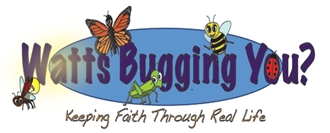 “What if asking for help is difficult?” “What if you like giving help, but have a hard time accepting or asking for help?” For many people, this is their life’s mantra. In my case, this was my life’s theme until I began volunteering on a regular basis and it became clear to me how asking for help is not a want but a necessity. For parents whose children are in the hospital, there is no longer a normal and if you have other children what do you do? Or what if you suddenly are told you have stage 4 cancer what do you do? What if you are a mother of 4 and also work a full-time job what do you do?
“What if asking for help is difficult?” “What if you like giving help, but have a hard time accepting or asking for help?” For many people, this is their life’s mantra. In my case, this was my life’s theme until I began volunteering on a regular basis and it became clear to me how asking for help is not a want but a necessity. For parents whose children are in the hospital, there is no longer a normal and if you have other children what do you do? Or what if you suddenly are told you have stage 4 cancer what do you do? What if you are a mother of 4 and also work a full-time job what do you do?
For whatever reason, we are taught and want to do everything ourselves. We are taught being independent makes you strong, brave, resilient, empowered, etc. My daughter is a great example. By observing her learning cycle for the last two years she is all about doing everything herself. If we tie her shoes, she screams – “I can do it myself.” Honestly, she must get her behavior traits from me since her mother is a driver who has tried balancing running her own company and home at the same time. There is pride in climbing up the ladder and doing it ourselves, but shouldn’t there also be pride in sharing responsibilities and asking for help?
At home, the common phrase is – “If you ask, I will help.” However, most of the time, we ignore these requests and just do it ourselves. Then the complaining starts since there is too much to do. Does this sound like you? No one wins in this scenario since those closest to us hear our bickerings and we feel resentment towards those who don’t provide automatic help.
At work, my teams have said please delegate responsibilities around the office. We like to learn and like to facilitate training, conduct interviews, or perform employee evaluations. The best leaders are those who know how to do this well – they know how to build accountability on their teams and realize setting their teams up for success is as good as having themselves glow in the lime-light.
For those who ask for help well – they embrace other important attributes such as:
1) Others want to help. People ask to help because this is something they can do to make a situation better. They don’t always know what to say, but they can mow your lawn or have your children over for a play date. It is something they can do which doesn’t cost a lot, but to you it can be priceless.
2) They know asking for help doesn’t make you less of a person or needy. If you are considerate in asking for help – it can help you learn the skill of prioritizing and delegating. It also helps alleviate stress because you’re not putting pressure on yourself when you know you are overloaded and can’t get a task done in a reasonable time.
3) They don’t feel guilty for asking. One of the most rewarding lessons in life is learning to breathe and let go. Needing to control everything is like the plague because you can’t control everything anyway and it continues to eat at you. Letting go can provide freedom.
4) They understand the importance of paying it forward. Right now you need help, but later on you can provide the same help back. My life runs by the old adage – what comes around goes around.
5) Asking for help doesn’t need to be big things – it can also be asking for small things. Examples of small things can be sending mail for you, picking children up from practice, helping children with homework, watering your plants, praying for you, etc. It’s ok if people also ask for big tasks (ex. cleaning your house), but the small asks can many times be just as important.
6) Are not worried about rejection. If someone can’t help, then you respect their decision and move on. Again, most people have the heart for helping, so, rejection should not happen often unless warranted or unusual circumstances. Sometimes people’s schedules literally don’t work, in order, to help. As for abusing help, the goal is not to ask without appreciating the help. Receiving help is a gift, we should appreciate with open arms.
What’s funny with this post is I have not yet perfected this behavior. So if you are like me it may take time for you to open your heart and mind to the possibility of asking for help, but hopefully something in this post has triggered you to think about it. Hopefully something in this post has made you ask yourself – what is holding me back and what is the crime in asking? What can I hope to receive in the gift of asking? You never know – it may open doors to stronger bonds, less stress, and freedom of mind and time.





